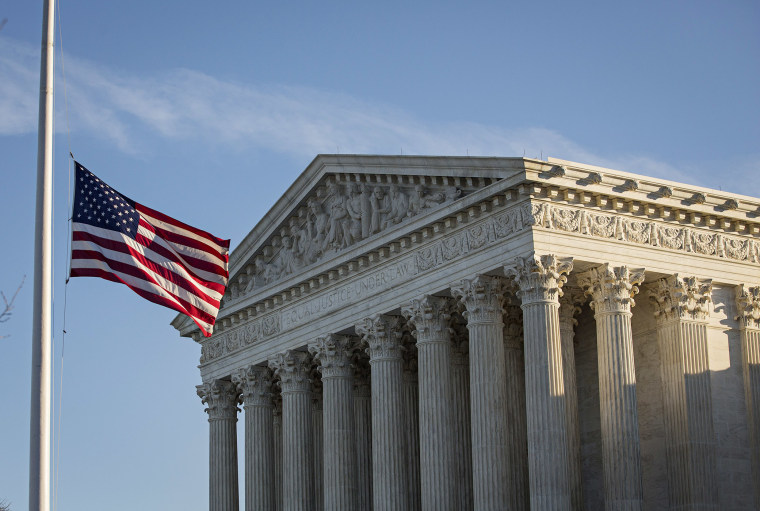Sen. Rob Portman (R-Ohio), facing a re-election challenge this year, decided to join his party's Supreme Court blockade last week, announcing his intention to help block any President Obama nominee, regardless of qualifications or merit. In the
New York Times report on his posture, the article told readers Portman "says it is 'common practice' for the Senate not to consider lifetime appointments in the last year of a president's term; Democrats disagree."
This is, alas, a terrific example of "he said, she said" reporting. Republicans made a bold claim -- tradition holds that the Senate ignore Supreme Court nominees in presidential election years -- and Democrats "disagree" with that claim. Which side is correct? The article doesn't say.
Whether or not some "agree" or "disagree" with a party's talking points is irrelevant. Partisans can respect traditions, norms, and common practices, but they can't simply make them up out of whole cloth -- and reporters certainly shouldn't help them by playing along.
Meanwhile, the intra-party debate continues as to whether or not to even give Obama's unnamed nominee a hearing. The Fort Wayne Journal Gazette
reported over the weekend on one notable Senate Republican who's trying to sound flexible.
Indiana's Dan Coats is not among Republican U.S. senators who say President Barack Obama should refrain from nominating a Supreme Court justice in the last year of his term. [...] "If the president nominates someone, which is his choice, I think that person would deserve a hearing if that person is not someone that is just obviously nominated for political purposes," Coats said this week in an interview.
This isn't to say Coats is taking a moderate, or even conciliatory, path. On the contrary, the Indiana Republican, who's retiring this year, said he's applying a "litmus test" in which Antonin Scalia's replacement should agree with Scalia's "constitutional position."
But even Coats can't justify denying a qualified nominee a hearing. Similarly, Sen. Roy Blunt (R-Mo.)
added over the weekend that while he'll oppose any Obama nominee sight unseen, he nevertheless "would not object to a Senate floor vote on a nominee."
The
New York Times this morning
noted other Republicans thinking along similar lines.
"The fact is, no one knows who is going to win the election," said Richard G. Lugar, the former Republican senator from Indiana. "Therefore, speculating that whoever is nominated is going to be in a better position may be an error." [...] "I can understand their reluctance given the controversy that surrounds all of the debate that has already occurred," Mr. Lugar said. "But that is not sufficient reason to forgo your duty." His view was shared by Olympia J. Snowe, a former moderate Republican senator from Maine. "I believe that the process should go forward and be given a good-faith effort -- and ultimately people will come to their own decision on a vote on a nominee," she said in a statement.
Neither Lugar nor Snowe will have a vote. Their party left them behind quite a while ago.
